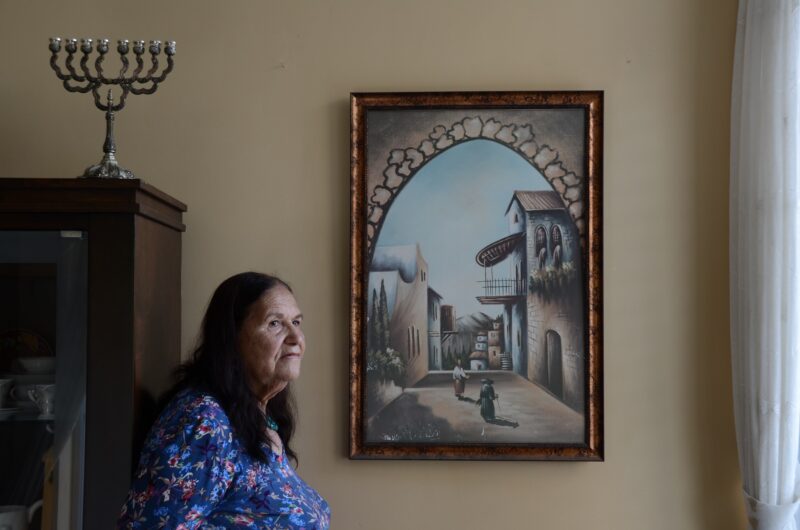
Shoshana Yekutel
Holocaust survivor, Tunisia
The Nazis made the Jews wear yellow badges, especially in the big cities, and launched the usual process of dehumanization, just as they had done in Europe. They began to build the infrastructure for the extermination of the Tunisian Jewry. All Jewish males were forced to work in labor camps set up for this purpose. My father was taken away to work at one of these camps, and he never overcame the humiliating experience and the damage to his health. He died of pneumonia shortly after the war.
We suffered hunger, thirst, disease, and lice infestation. My mother talks about the terrible feeling of helplessness, of losing all control over our lives. Terror dominated the streets and you could never know who was going to be the next victim. The List of victims from our community grew longer every day. Luckily for the Tunisian Jewry, Messiah’s prophecies were not fully realized – the Germans simply didn’t have enough time to finalize their plans. In May 1943, six months after their takeover, the British managed to drive them out and save us from the Nazi extermination machine.
I feel I am part of the Holocaust, but it seems as though other people don’t always acknowledge that. The fact our hardships are hardly mentioned in the Holocaust Remembrance Day events upsets me. We were not burned to ashes in Europe’s crematoriums, that is true, and still, we were put through great suffering just for being Jews. One has to remember that if it were not for the British, we would have gone up in smoke. I think it is about time we were historically recognized as part of the Holocaust.”
